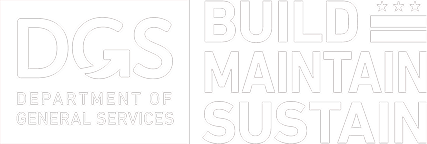DC Students Take Action to End Plastic Pollution Ahead of Earth Day
(Washington, DC) – The DC Department of General Services (DGS) congratulates the six DC schools that completed the DC Reduce First Challenge: Plastic Edition.
The Reduce First! Challenge, open to all schools in the District of Columbia, is an annual citywide competition that calls on schools to develop creative strategies to reduce waste. On February 5th, DGS launched the third installment of the Reduce First! Challenge, aimed at reducing plastic waste and pollution. During the Reduce First! Challenge: Plastic Edition, student and teacher teams applied science, mathematics, reading, and writing skills to address the real-world problem of plastic waste in their city. Students performed an initial waste audit to determine how much and what types of plastic their school was discarding, selected a specific target single-use plastic item to reduce, then created and implemented a Reduction Action Plan.
“Creating a safe and green built environment which fosters economic growth and elevates educational environments is an integral part of the DGS mission,” says DGS Director Greer Johnson Gillis. “Plastic pollution can threaten the economic vitality of our communities and the health of the District’s ecosystems and resources. DGS created the Reduce First! Challenge: Plastic Edition to encourage students right here in the nation’s capital, where we have some of America’s brightest young minds, to tackle this problem and contribute to the creation of healthier school communities.”
These three winners were selected by a panel of expert judges consisting of members of the District’s Interagency Waste Reduction Working Group representing DGS, DPW, and DOEE:
Most Improved Award: Francis Scott Key Elementary – The Most Improved Award goes to the team that generates the largest reduction of the selected plastic item compared to the baseline established at the outset of the competition. The Key Penguins achieved this benchmark by cutting their plastic cutlery use by more than half. The team achieved this significant reduction due in part to students volunteering as waste bin monitors and peer educators in their cafeteria.
Most Replicable Solution Award: School Without Walls at Francis-Stevens (SWWFS) – The Most Replicable Solution Award goes to the team that implements and shares a strategy that can be most easily reproduced by other schools or institutions. The SWWFS Tigers launched an awareness campaign comprised of replicable ideas including: designing and installing signage to deter plastic utensil use and an eye-catching campaign logo (a skull with spoon and fork cross bones); proposing a utensil-free “Finger Food Friday” school lunch period; and developing a collaborative plan with neighboring institutions and organizations to purchase compostable plant-based alternatives to plastic cutlery.
Most Learning Award: Maury Elementary – The Most Learning Award goes to the team that best connects the challenge to classroom concepts, or otherwise expands on learning objectives. The Maury Cougars integrated competition lessons with planned classroom instruction. Students were invited to conduct a scientific investigation over the course of the competition. They explored the entire lifecycle of plastic bags and other waste materials through hands-on waste audits, reading National Geographic’s Human Footprint, studying the DCPS Recycles! Story of Waste story map, and in-depth discussions, all of which impacted the school community’s learning about the plastics problem and applicable solutions.
Congratulations to all six (6) schools that completed the challenge, including five (5) DC Public Schools and one (1) DC Public Charter School:
- Burroughs Elementary School (Ward 5)
- Cardozo Education Campus (Ward 1)
- Key Elementary School (Ward 3)
- Maury Elementary School (Ward 6)
- School Without Walls @ Francis-Stevens (Ward 2)
- Washington Latin PCS (Ward 4)
The UN Environment Programme has estimated that every square mile of ocean contains 46,000 pieces of plastic. In Washington DC, plastics contribute to the contamination of the Anacostia and Potomac Rivers, both of which are on the Environmental Protection Agency’s (EPA) 303(d) list designating impaired waters. Reducing waste at the source is the first step in a sustainable waste management system (as shown in the EPA’s waste management hierarchy).
According to Zach Dobelbower, DGS Associate Director for Sustainability, “The Reduce First! Challenge increases the environmental literacy of District students and enables DGS to support the next generation, or those who will be most impacted by climate change, to face the issue head on by applying real-world solutions in their neighborhoods and school communities.”
DGS encourages all schools to follow their lead and take action to end plastic pollution during the countdown to Earth Day 2018. All schools can take action to end plastic pollution by conducting their own Reduce First! Challenge during Earth Month! Download instructions at dcpsrecycles.dc.gov.
Related Content
The “Story of Waste” Story Map: Follow the trail of your plastics and other items using this interactive site.
DCPS Recycles! Flickr: View photos from this Reduce First! Challenge – Plastic Edition, previous challenges, and more.
Competitions and Challenges: Find information on previous Reduce First! Challenges, and other DGS contests here.
